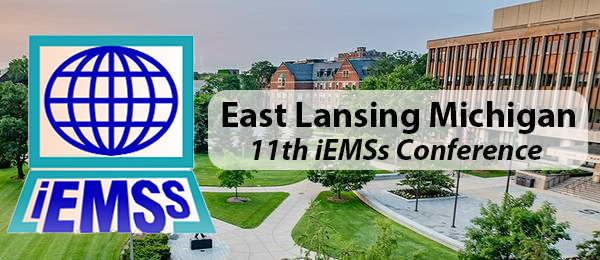Keywords
spatial decision support; participatory modeling; renewable energy; land-use planning; sustainability science
Start Date
7-7-2022 12:00 PM
End Date
7-7-2022 12:20 PM
Abstract
Participatory decision support tools have been developed to support the implementation of many areas of environmental policy, but are less common in energy contexts. At the same time, a new wave of social innovation in small-scale and local Renewable Energies (SLRE) is emerging in response to problems with conventional energy systems including the climate crisis, rising energy prices, lack of democratic participation, energy poverty and many more. This emerging phenomenon calls for additional support for spatial planning of land use at the community level. Here, we discuss the process of participatory development of two different types of digital support tools in for the cases of Spain and the Netherlands, leading to insights into the characteristics that seem to be most useful for SLRE. The tools developed represent two extremes of the spatial decision support tool spectrum, a simple touchscreen application on the one hand (COLLAGE) and a more complicated spatial model on the other (APoLUS). COLLAGE was used and well-liked by stakeholders, whereas APoLUS was not adopted by the participant group, who nevertheless contributed much essential information to its development. Eight key differences between the two tools are discussed which shed light on the nature of bottom-up energy transition processes: 1: Target users; 2: Target scale; 3: Relevance to user’s needs; 4: Interactive quality; 5: Key emphasis; 6: Level of complexity; 7: Ease of communication of tool rationale; 8: Cost. The differences between these tools also relate to a recognized dichotomy in sustainability transition research, with complex spatial support systems like APoLUS tending towards descriptive-analytical modes of sustainability science with COLLAGE being more clearly related to transformational modes. Approaches to supporting local scale energy transitions that are able to span both modes are likely to become increasingly relevant as the climate crisis evolves.
Spatial planning for small scale and local renewable energy - integrated land use models or digital decision support tools?
Participatory decision support tools have been developed to support the implementation of many areas of environmental policy, but are less common in energy contexts. At the same time, a new wave of social innovation in small-scale and local Renewable Energies (SLRE) is emerging in response to problems with conventional energy systems including the climate crisis, rising energy prices, lack of democratic participation, energy poverty and many more. This emerging phenomenon calls for additional support for spatial planning of land use at the community level. Here, we discuss the process of participatory development of two different types of digital support tools in for the cases of Spain and the Netherlands, leading to insights into the characteristics that seem to be most useful for SLRE. The tools developed represent two extremes of the spatial decision support tool spectrum, a simple touchscreen application on the one hand (COLLAGE) and a more complicated spatial model on the other (APoLUS). COLLAGE was used and well-liked by stakeholders, whereas APoLUS was not adopted by the participant group, who nevertheless contributed much essential information to its development. Eight key differences between the two tools are discussed which shed light on the nature of bottom-up energy transition processes: 1: Target users; 2: Target scale; 3: Relevance to user’s needs; 4: Interactive quality; 5: Key emphasis; 6: Level of complexity; 7: Ease of communication of tool rationale; 8: Cost. The differences between these tools also relate to a recognized dichotomy in sustainability transition research, with complex spatial support systems like APoLUS tending towards descriptive-analytical modes of sustainability science with COLLAGE being more clearly related to transformational modes. Approaches to supporting local scale energy transitions that are able to span both modes are likely to become increasingly relevant as the climate crisis evolves.



Stream and Session
false